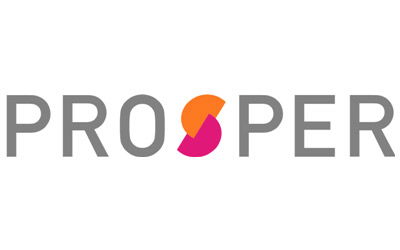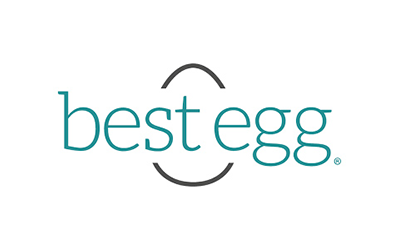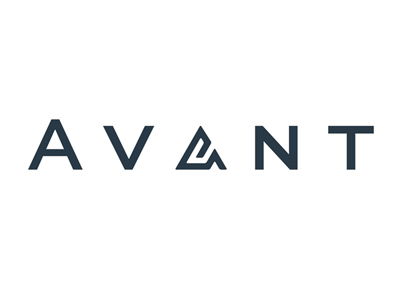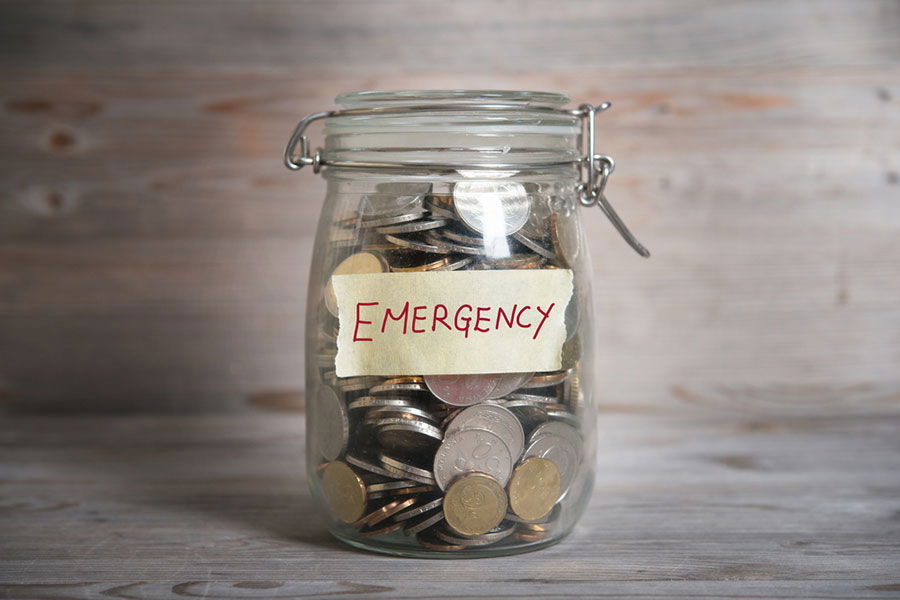Having good credit puts you in the driver’s seat when shopping for a personal loan. Lenders compete for borrowers like you, offering lower interest rates, higher loan amounts, and faster approvals. That means you can borrow money with confidence—whether you’re consolidating debt, covering a big expense, or making home improvements—without overpaying in interest.
But not all personal loans are created equal. Some lenders offer better rates, more flexible terms, or fewer fees. Others cater to specific needs, like peer-to-peer lending or same-day funding. The key is finding the right fit for your financial situation.
Below are the best personal loans for good credit in 2025, along with what each lender offers and what to consider before applying. Let’s dive in.
Top 8 Personal Loans for Good Credit
The best personal loans come with low rates, flexible terms, and fast funding, but each lender has its own strengths. Some focus on higher loan amounts, while others offer the easiest application process or the lowest APR. Comparing options ensures you get the best deal.
1. Prosper
Loan Amount: $2,000 to $40,000
Term Length: 3 or 5 years
Minimum Credit Score: 640
2. SoFi
Loan Amount: $5,000 to $100,000
Term Length: 3, 5, or 7 years
Minimum Credit Score: None (average is above 700)
3. OneMain
Loan Amount: $1,500 to $25,000
Term Length: Up to 60 months
Minimum Credit Score: varies
4. LendingPoint
Loan Amount: $3,500 to $20,000
Term Length: 24 to 48 months
Minimum Credit Score: 600
5. Upstart
Loan Amount: $1,000 to $50,000
Term Length: 3 or 5 years
Minimum Credit Score: 620
6. Best Egg
Loan Amount: $2,000 to $50,000
Term Length: 3 to 5 years
Minimum Credit Score: 640
7. Avant
Loan Amount: $1,000 to $35,000
Term Length: 2 to 5 years
Minimum Credit Score: 600
8. LendingClub
Loan Amount: $1,000 to $40,000
Term Length: 3 or 5 years
Minimum Credit Score: 600
Pros of Personal Loans
As with any major financial decision, taking out a loan has its benefits and potential drawbacks. Before you set your heart on a personal loan, it’s good to consider both the pros and cons. Here are the pros:
Lower Rates Compared to Credit Card
One of the major benefits of a personal loan is that they can offer much better interest rates in comparison to a credit card. If you’ve got good or excellent credit, you should be able to secure a relatively competitive rate on a personal installment loan.
No Collateral Needed
Unless otherwise stated, personal loans are unsecured. This means they are not guaranteed by collateral, so you won’t have to risk losing personal possessions if you fall behind on payments. Instead, lenders will thoroughly evaluate your credit standing to determine if you are a trustworthy borrower.
Easier Payments
Taking out a personal loan to consolidate debt means you can turn several monthly payments into one, making it much easier to manage.
Absorb Large Purchases
A personal loan allows you to afford large purchases that you may not otherwise have access to, by paying them off over the course of the loan term.
Cons of Personal Loans
Potentially high penalties and fees
Fees and potential penalties are a feature, even with the best personal loans. Origination fees, for example, are extremely common. Late fees are also a normal part of unsecured personal loans. Don’t overlook the fees involved when calculating the cost of a loan.
Risk of Greater Debt
While a personal loan can be a great way to consolidate debts, it is easy for people to mistake it as an easy way out of debt. In reality, getting a personal loan can often simply free up space to take on even more debt.
If you’re not careful and responsible with your payments, this could lead you into greater financial difficulty.
No Funding Guarantees
There are no guarantees that a lender will provide you with the total loan amount you need. Even good credit borrowers, if requesting a large sum, can be denied their desired total funding.
Higher Monthly Payments
Although the interest rates are usually lower, monthly loan payments can be higher than your minimum credit card payment. The difference is that a personal loan will reduce the principal of the debt, while your minimum credit card payment is primarily just interest.
The Different Types of Online Personal Loans
When looking for the best personal loan online, you need to know that there are a few different types of lenders out there. Understanding which type you’re working with helps clarify much of the process, from how your personal loan is funded to how you’ll repay it.
Traditional Lenders
Many traditional financial institutions are making their way into the online loan market as well.
You might be familiar with some of the names. However, many banks with brick-and-mortar locations can’t offer interest rates as competitive as strictly online lenders because they have much higher expenses to cover. Some banks are better at this than others, so always be sure to shop around.
Alternative Lenders
Another burgeoning type of lender is the alternative lender. Many of these companies are startups seeking to fill a gap in the need for different loan requirements than traditional banks offer.
Several of the top personal loan lenders use algorithms to determine what kind of loan terms borrowers qualify for based on financial and other types of data. They typically don’t have branch locations so they can keep their overhead costs low. That allows them to focus on passing savings to borrowers in the form of low interest rates. Credit unions are also popular and can offer competitive interest rates to their members.
P2P Lenders
Finally, one of the oldest types of lenders is the peer-to-peer or P2P lender. P2P loans originated in England and worked their way to the U.S. in the early 2,000s. P2P lending allows individual investors to fund personal loans and collect the interest as their return.
There is still a formal application process. However, these lenders have opened the doors to greater access to credit for those with lower credit scores. And if you have good credit, you get to take advantage of low interest rates and flexible repayment terms.
How to Compare Personal Loans
Finding the best personal loan rates requires comparing offers from multiple lenders. But knowing how to compare loans confidently means understanding all the different elements that make up a loan offer.
Let’s run through the criteria you’ll want to consider to find the best personal loans:
APR
Loan offers will come with both an interest rate and an annual percentage rate (APR). The interest rate is an important factor, but the overall cost of your loan will be reflected in the APR. This is because the APR includes all loan fees as well as the interest rate.
Fees
The fees associated with a loan offer can vary widely, so it’s important to give them careful consideration. Some fees, such as origination fees, are widespread. But you’ll want to pay close attention to things like late payment fees, as well as early fees. Keep in mind that online lenders sometimes offer very low fees.
Loan Term
The loan term is another important thing to consider. This is the period during which you will make monthly payments to repay the loan. Loan terms range from short, long or flexible, depending on your credit standing and the lender.
Try to figure out your ideal loan term before shopping for quotes. Keep in mind the while a long-term loan will mean lower monthly payments, it will also lead to a more expensive loan overall.
Loan Features
There may also be additional features offered by a loan provider which could factor into your decision. Some lenders have strong apps or desktop loan platforms which are useful for keeping track of your payments. Flexible payment schedules or options to defer payments are further examples of possible loan features.
Time to Funding
The speed with which you receive your loan funds after approval will vary between lenders. Most loans will take at least two business days to arrive into your bank account, but there are options out there for faster loan funding if necessary.
Applying for Personal Loans Online
Lenders who operate online make it easy for borrowers to get offers within minutes of entering a few pieces of basic information. There are typically two types of online applications: the pre-approval process and the formal application.
Pre-Approval
Many lenders allow you to check your personal loan offer through the pre-approval process without performing a hard inquiry. This lets you find out what kind of interest rates and monthly payments you can expect. That way, you can compare offers without getting a hard credit inquiry on your credit report.
Application Process
Once you find loan terms you approve of, it’s time to fill out the loan application form. During this time, you’ll enter your personal and financial information to verify your ability to repay, and they’ll usually perform a hard pull at this point.
Typically, you’ll also need to upload your driver’s license and pay stub as proof of identity and financial information. The exact requirements vary depending on each lender.

What Lenders Look For
Traditionally, lenders place the greatest importance on two factors: your credit history and your current financial ability to repay the loan.
They’ll look at your credit score to determine how well you’ve paid your current and past obligations. But if you have good credit, you most likely won’t have any issues.
Debt-to-Income Ratio
Lenders also review your current outstanding debt payment obligations, as well as your income. They compare the two using a formula called the debt-to-income ratio, or DTI. If you carry too much debt for the amount of money you earn each month, they might not view you as very creditworthy. Even if you have excellent credit history, it’s worth taking a look to see how your DTI stacks up.
Those are historically the most important criteria for traditional lenders. However, remember that many online lenders began explicitly replacing the old underwriting standards.
Many place greater importance on other factors besides your credit score and debt. For example, they consider your education, earning potential, and the types of debt you owe. Depending on your situation, you might be better suited with a lender that takes the bigger picture into account.
Do personal loans affect your credit score?
You want to make sure you keep your good credit score intact. So, what changes can you expect after taking out a personal loan?
You may see a slight dip after submitting your application, but this typically only amounts to 5 to 10 points. The good news is that credit scoring models typically group similar loan inquiries together, as long as you complete them within a few weeks of each other. This allows you to price shop without worrying about a big drop in your credit scores.
Once a personal loan is funded, you may see another dip in your credit score because you’ll have a higher debt balance. The exception to this is if you’re consolidating credit card debt into a debt consolidation loan. Generally, installment loans are viewed more favorably than revolving credit, so you might actually see an increase in this situation.
Credit Score Boost
It is possible for a personal loan to improve your credit score, too. It all depends on how well you can manage your payments over time.
Here are the main ways a loan could boost your credit score:
- Positive payment history: If you take out an installment loan and demonstrate a consistent ability to make your monthly payments on time, your credit score will slowly improve. Payment history is the biggest factor in determining your credit score.
- Improved credit utilization: If you have other active forms of credit, taking on a new loan could also boost your score if it leads to a lower credit utilization ratio.
- Improved credit mix: Your credit mix could improve through taking on a new personal loan. Even though applying for the loan will temporarily bring your credit score down, maintaining a more diverse credit mix will also contribute to improving your score.
Why Take Out a Personal Loan
Once you find the right lender, getting a personal loan can help you in many ways.
Debt consolidation loans are a very popular option these days. The reason is that personal loan rates are much lower than credit card interest rates, especially if you have good credit history. Other people use personal loans for home improvement, major life events like weddings and vacations.
Before Applying
Before you apply for any loan, make sure the lender offers personal loans for your intended use. Most want to know exactly what you will use the loan proceeds for before making the loan. And because that information is in your legal loan agreement, you’ll want to stick to your word.
No loan decision should ever be made lightly, so make sure you do your research before reaching a conclusion.
Repayment Terms
You’ll want to know that you can make your monthly payments even if something major comes up, like a job loss or medical emergency. So keep that good credit intact by keeping a padded monthly budget and a healthy rainy day fund.
With the right personal loan, you can build your credit history by consistently making on-time payments. And that, along with funding a significant purchase or life event, can feel like a great accomplishment.
How to Improve Your Credit Score
Although good credit borrowers may feel comfortable, even the smallest improvement in credit habits could lead to big savings. Putting in a bit of extra work could quickly raise your score further and help you access an even better rate.
Review Credit Reports
Consumers are entitled to one free credit report per year from each of the three major credit bureaus. If you don’t already do so, regularly examining your credit reports can help you better understand your credit standing. It also gives you the opportunity to spot any errors which could be negatively affecting your credit score.
Make Full, Timely Payments
Because payment history carries the biggest weight on your FICO credit score, ensuring you make timely payments is vital. But you can also go further by making those payments in full, rather than simply meeting the minimum. This can improve your credit score within a few months.
Pay Off Debt
Before you apply for a loan, always try to pay off as much debt as possible. This should result in a relatively quick credit score boost, as a good debt to income ratio is important for many lenders, no matter your score.
Avoid Closing Old Accounts
While it might seem wise to close down a credit account that you don’t use, remember that this will affect both your credit utilization and your credit history overall.
Frequently Asked Questions
What is a good credit loan?
A good credit loan is simply a regular personal installment loan for good credit borrowers. According to FICO, any credit score of 690 or higher is considered good, at least. For a regular unsecured personal loan, there are numerous deciding factors that lenders consider.
Your debt to income ratio, employment status and annual income are often checked, but your credit score will be the most important factor when applying for a loan.
A good credit loan will come with relatively competitive rates and access to some of the best loan terms.
Can a personal loan help build your credit?
Yes. A personal loan can definitely improve your credit score, once it is managed well. Making timely payments can build your credit history regarding payments, credit utilization and also credit mix.
However, opening a new line of credit will most often result in a temporary decrease in your credit score. And it should be said that simply being approved for a good credit personal loan doesn’t mean your credit score will improve. Any new line of credit has to be responsibly managed to result in a better credit standing.
What is a good credit score for a personal loan?
According to FICO, good credit ranges from 690 to 719. While the minimum credit score requirements will naturally vary between lenders and rate levels, having good to excellent credit means that the best loan offers will be accessible to you.
How much can you borrow with a personal loan?
In general, personal loans range from $1,000 all the way to $100,000. However, for most lenders, loan amounts capped at around $40,000 to $50,000. Only a small selection of lenders will offer loan amounts over $50,000, and these loans are exclusive to those with the best credit scores and significant incomes.
What documents are required for a personal loan?
The documentation required for loan application will vary between lenders and loan products. Generally, you’ll need at least one form of government ID, Social Security Number, proof of income, and personal details such as your home address and contact information.
What can you use a personal loan for?
Most personal loans can be used to fund any personal expense. The primary restrictions on usage of personal loans relate to college tuition fees and business expenses. Most loans will be used to fund the following:
- Large household expenses
- Debt consolidation
- Home improvement or repairs
- Medical bills
- Weddings or vacations
- Funerals
- General emergency expenses











